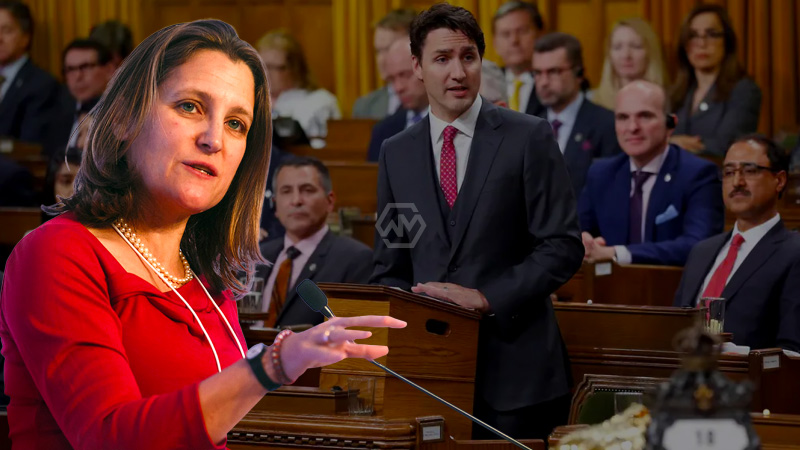- PMO concerned with Finance Minister Chrystia Freeland’s economic messaging.
- Discussions about replacing Freeland with former Bank of Canada Governor Mark Carney.
- Internal debates over new tax on U.S. tech giants and federal budget effectiveness.
The relationship between Prime Minister Justin Trudeau’s office and Finance Minister Chrystia Freeland is strained due to concerns over her effectiveness in promoting the government‘s economic policies.
Internally, there have been discussions about potentially replacing Freeland with Mark Carney, former Governor of the Bank of Canada. Despite Trudeau’s public support for Freeland, the PMO is uneasy about the new tax on U.S.
Trudeau’s Cabinet Faces Strain Amid Economic Messaging Critiques
Prime Minister Justin Trudeau’s office is currently at odds with Finance Minister Chrystia Freeland over the government’s economic messaging. Senior PMO officials feel Freeland has not effectively conveyed a positive economic outlook, leading to dissatisfaction within the Liberal ranks. This discord has been further fueled by the Liberal Party’s recent by-election loss in the traditionally safe riding of St. Paul’s, raising questions about the party’s current strategy and leadership.
Discussions within the PMO have included the possibility of appointing Mark Carney, former Governor of the Bank of Canada, as the new Finance Minister. Carney, a potential leadership contender, has voiced concerns over the Liberal government’s focus on spending rather than economic growth. Although Trudeau has publicly supported Freeland, the idea of a cabinet reshuffle has gained traction among party members seeking a fresh direction.
The PMO is also conflicted over a controversial new tax on U.S. tech giants, which Freeland argues will bring in substantial revenue. However, some officials fear retaliatory measures from the United States, adding to the internal unease. This tax is part of a broader federal budget aimed at addressing housing and economic issues, but it has faced criticism for its potential negative impact on investment and productivity.
Freeland’s role has been further scrutinized due to her inability to rally the Liberal caucus behind key economic policies. Despite her achievements, such as implementing $10-a-day child care and significant housing investments, the persistent low approval ratings have led to increased pressure on both her and the Prime Minister. As the Liberals trail the Conservatives, internal calls for change grow louder, pushing for a new approach to reconnect with Canadian voters.
The tension between Prime Minister Justin Trudeau’s office and Finance Minister Chrystia Freeland underscores the challenges the Liberal government faces in addressing economic concerns and public discontent. As internal debates and external criticisms mount, the government must find a cohesive strategy to regain the confidence of Canadians.
“The relationship between Ms. Freeland, who is also Deputy Prime Minister, and the Prime Minister’s Office has become tense.”



